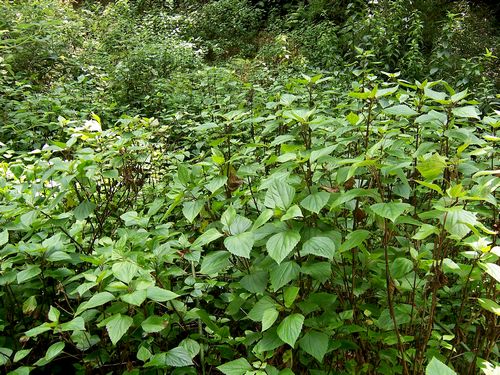
Allelopathy has been widely studied as one of the mechanisms underlying the invasion success of exotic plant species. Previous studies have shown that soil microbes are important in mediating allelopathic interactions between invasive and native plants in the field. However, it was not known how these interactions vary in the process of biological invasions and the effects of soil microbes.
Researchers from Group of Plant Physiological Ecology with Xishuangbanna Tropical Botanical Garden (XTBG) of the Chinese Academy of Sciences conducted a study to evaluate the effects of soil microbes on the allelopathic effects of Ageratina adenophora, a noxious invasive perennial weed and established in SW China.
The researchers first conducted a competition experiment using soils collected from six invaded and six non-invaded sites. They used activated carbon to diminish the allelopathic effects of the invasive species.
They then investigated the effects of the abundance of A. adenophora on the allelopathic effects of its leaf leachate, degradation of 9-Oxo-10, 11-dehydroageraphorone (DTD) and 9β-hydroxyageraphorone (HHO), and the allelochemical-degrading soil microbes by using soils collected from 30 sites with varying abundances of A. adenophora.
They finally isolated the allelochemical-degrading microbes from the invaded and non-invaded soils and determined their effects on the degradation of DTD and HHO, and on the allelopathic effects of the invasive species.
In their experiments, the allelopathic effects of the invasive plant were much stronger in soils from non-invaded sites than in soils from invaded sites. Activities of the allelochemical-degrading microbes were higher and degradation of the allelochemicals of the invasive plant was faster in soils from invaded sites than soils from non-invaded sites.
In living soils from 30 sites with increasing abundance of A. adenophora
Their results showed that soil microbes may decrease the allelopathic effects of invasive plants by degrading their allelochemicals, and that the effects of soil microbes may increase with increasing invasive species abundance, gradually decreasing the allelopathic inhibition on co-occurring native plants.
The study also indicated that application of the allelochemical-degrading microbes may facilitate ecological restoration of invaded or newly disturbed ecosystems.
The study entitled “Changes in soil microbial communities due to biological invasions can reduce allelopathic effects” has been published online in Journal of Applied Ecology.

Ageratina adenophora (Image by LIAO Zhiyong)

86-10-68597521 (day)
86-10-68597289 (night)

52 Sanlihe Rd., Xicheng District,
Beijing, China (100864)

